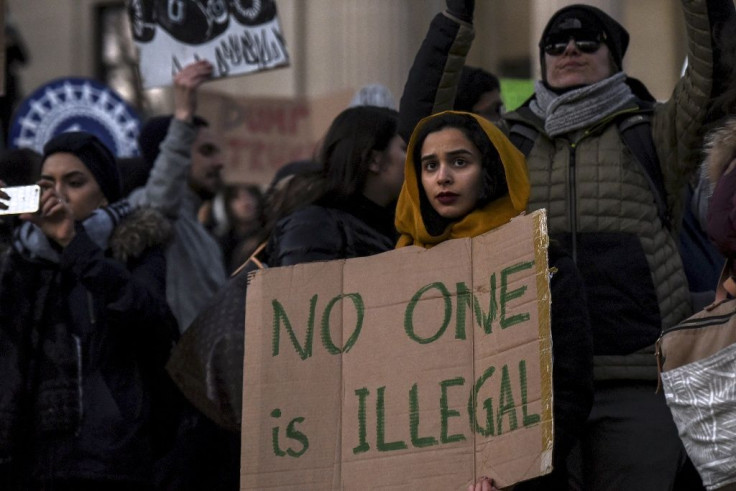Who Is James Robart? Immigration Ban Halting Judge Accused By Trump Of Making 'Bad People Very Happy'

James Robart, a federal judge in the U.S. District Court for the Western District of Washington, rose to sudden fame after being slammed by President Donald Trump for issuing a temporary nationwide block to his administration's travel ban on seven Muslim-majority nations.
Although Trump vowed in a series of furious tweets Saturday that the "so-called judge" Robart’s decision would be overturned, the U.S. Court of Appeals for the Ninth Circuit Sunday morning denied the Justice Department’s initial request for an immediate stay to Robart's temporary restraining order on the travel ban.
Robart, a graduate of Georgetown University Law Center and Whitman College in Walla Walla, Washington, is “relatively apolitical,” according to Douglas Adkins, Robart’s childhood friend.
“He’s not a conservative or a liberal. He’s a man interested in the law and fairness,“ Adkin, an investor and a former investment banker, told the Guardian, adding that Robart and his wife have no children but have been foster parents to several Southeast Asian immigrant children.
Robart, who occasionally accessorizes his black robes with bow ties, was appointed to the bench in 2004 by the then-president George W. Bush, after spending 30 years in private practice at the law firm now known as Lane Powell. According to excerpts from his official biography on the federal court website, Robart served as the president of the Seattle Children’s Home and was also a former trustee of the Children’s Home Society of Washington.
“His involvement with children may have helped contribute to his understanding of the people impacted by this ruling but would not have shaped his interpretation of the rule of law,” Paul Lawrence, an attorney who filed a legal petition backing Washington State in the immigration case, said.
According to transcripts of the testimony given by him during his confirmation hearings, Robart remembered giving pro-bono legal services to “people who in many times felt that the legal system was stacked against them” while adding that he felt that the law “could be, if properly used, an opportunity for them to seek redress if they had been wronged.”
In 2016, Robart used the phrase “black lives matter” during a case regarding several allegations leveled at the Seattle police department which included the use of excessive force and police bias. Prior to that, in 2011, he put a halt to a change in state rules that would cut government funding for disabled children and families in Washington.
“When faced with a conflict between the financial and budgetary concerns and the preventable human suffering, the balance of hardships tips in the favor of preventing human suffering.“ Robart wrote in an opinion, according to Reuters.
Adkins believes that Robart would not be fazed by Donald Trump’s rant.
“His view is that criticism is important,” Adkins reportedly said.
© Copyright IBTimes 2025. All rights reserved.






















